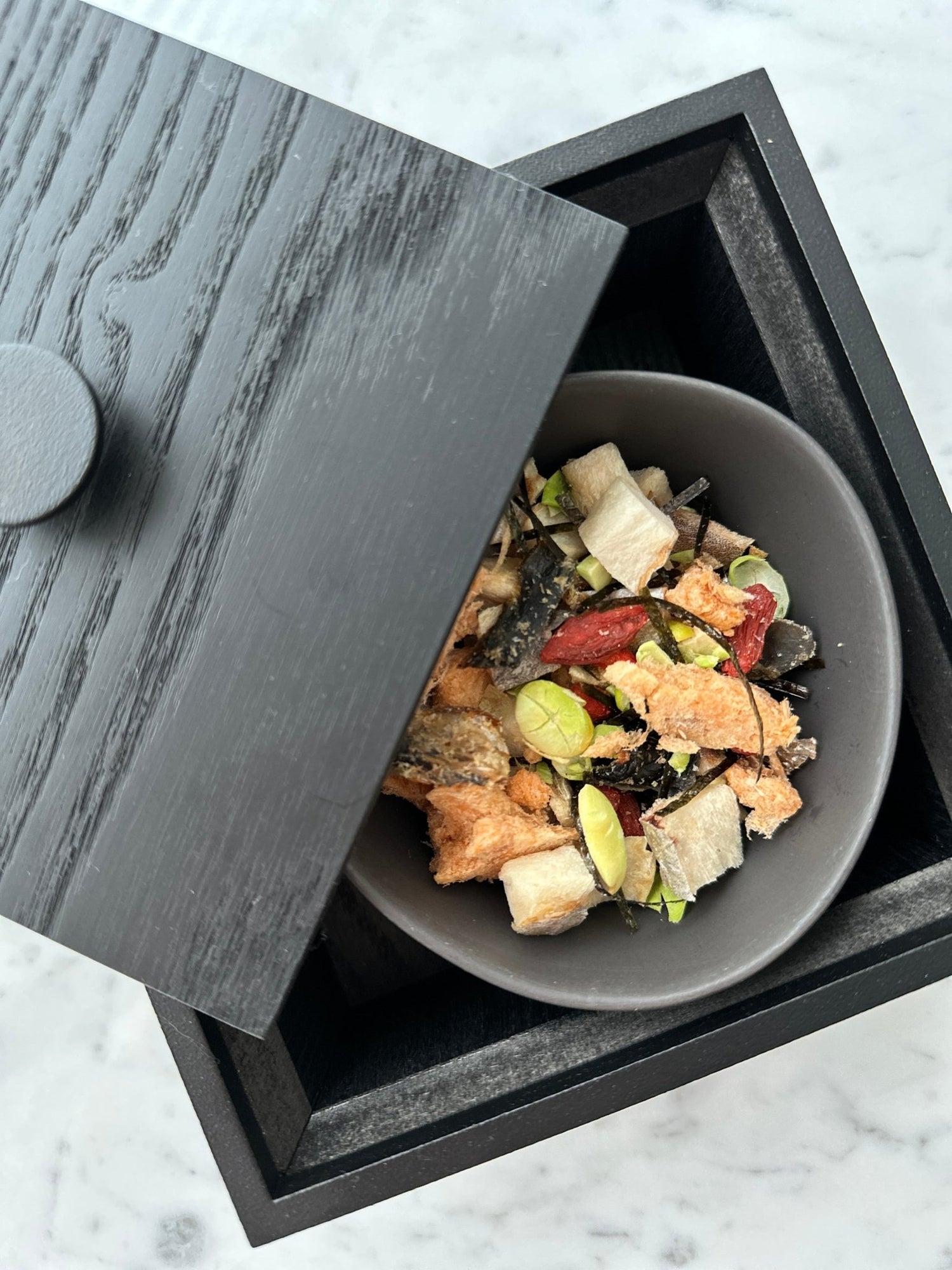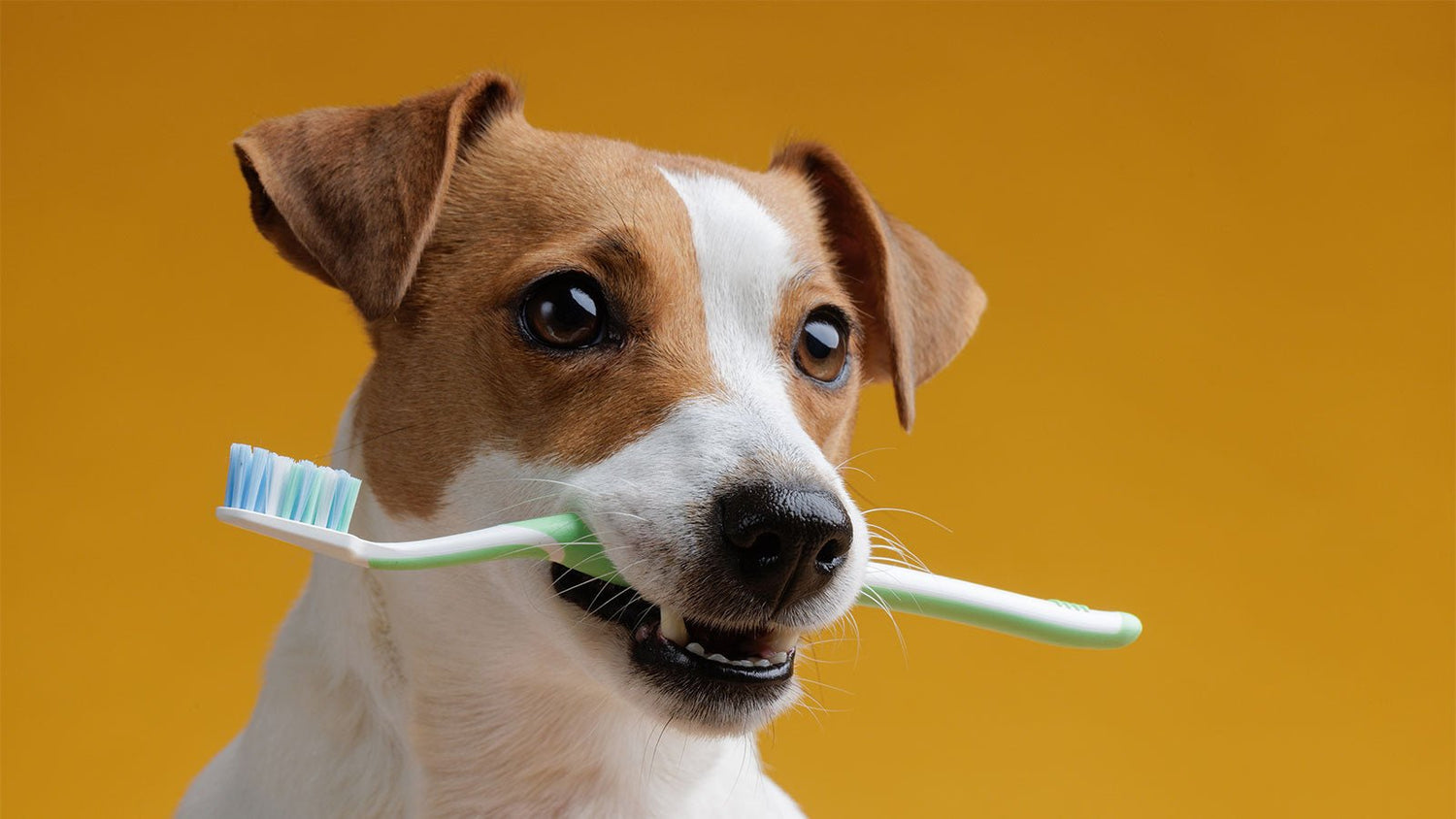Good dental health is essential to your pets' health, and dental problems can result in other health issues. According to scientific research, dental disease is the leading medical problem among pets today!
Retained baby teeth can cause problems for your dogs too! A full-grown adult dog has a set of 42 teeth. Before their adult teeth grow in, their baby teeth have to fall out. Sometimes, not all of the baby teeth fall out, which can lead to problems like gum irritation and tartar buildup. Periodontal disease is the most common dental condition in dogs. By the time they are three years old, they will likely have some early evidence of periodontal disease, which will worsen as your pet grows older if effective preventive measures are not taken. Early detection and treatment are critical, as advanced periodontal disease can cause severe problems and pain for your pet. Periodontal disease doesn't just affect your pet's mouth, but other health problems include kidney, liver, and heart problems.
Plaque is a gummy substance that forms on the teeth a few hours after a meal. Within 24 hours, plaque begins to harden by combining with salts in the saliva. As the plaque accumulates and mineralises, it eventually transforms into tartar. Tartar is rough and porous and can develop above and below the gum line. Tartar above the gumline can often easily be seen and removed. Plaque and tartar below the gum line can cause infection and damage to the jawbone and the tissues that connect the tooth to the jawbone.
Tartar forms a rough surface serving as a place for bacteria to grow and multiply in the mouth. Bacteria can cause inflammation of the gums - gingivitis, which often leads to painful bleeding. As tartar builds up along the gum line, it pushes the gums away from the roots of the teeth. As the gums recede, they expose the sensitive, enamel-free part of the tooth, which causes sensitivity and pain. Bacteria on the tartar can be absorbed into the bloodstream and deposited into various organs, including the heart and kidneys, causing infection.
According to veterinarian Dr Karen Becker:
"These serious health concerns develop or are made worse by the constant presence of oral bacteria flushing into the bloodstream through inflamed or bleeding gum tissue. The good news is that many of these conditions improve once the dental disease is resolved and good oral hygiene is maintained."
Your pet's teeth and gums should be checked by your veterinarian at least once a year to check for signs and symptoms of any problems to keep your pet's mouth healthy. Because most dental disease occurs below the gum line where you can't see them, thorough dental cleaning and evaluation are performed under anaesthesia. A dental cleaning includes scaling to remove dental plaque and tartar. However, cleaning teeth regularly under general anaesthesia is associated with high risk, which can sometimes mean death for otherwise healthy animals.
Holistic vets suggest a change in diet can often be enough to reverse dental disease in dogs. Veterinarian Sara Chapman mentioned, "Raw meaty bone diets keep wild carnivores' teeth in top condition, and they can do the same for our domesticated carnivores. Even ground raw diets help prevent tartar buildup, as the meat contains natural enzymes, and raw diets do not stick to the teeth, unlike diets high in starch. Kibble (dry food) has long been touted as helping to keep teeth clean because of its abrasive action. If you have ever watched your dog eat kibble, you have surely noticed that they don't chew the stuff; they bolt it down whole. I encourage all my clients to feed a highly balanced quality cooked or canned diets are acceptable alternatives if they can not feed raw."
Some other solutions to keep your dog's mouth healthy and bacteria-free include:
- Offering recreational, raw bones. Offering your dog raw bones to gnaw on can help remove tartar naturally by grinding it off through mechanical chewing. However, this may not be suitable for dogs with pancreatitis, weak or fractured teeth, resource guarders, "gulpers", etc.
- Probiotics provide oral health benefits when you give them orally, feed with meals or apply them directly onto gums, especially when using multiple strains of bacteria.
- Provide your dog with antioxidants. Antioxidants play an essential role in your dog's health. Oxidative stress is free-radical damage to the body's cells and tissues. A proper balance between free radicals and antioxidants is crucial for healthy periodontal tissues.
- Fatty acid supplements can also help manage periodontal inflammation. Omega-3 fatty acids benefit many aspects of your dog's health, supporting oral health and periodontal tissues, as well as joint, heart, kidney and brain health.
- Offer a fully digestible, high-quality dental dog chew. These can be freeze-dried tendons, bully sticks etc.
- Perform routine mouth inspections. Regular routine mouth inspections will help you notice any changes that might occur from one inspection to the next. Your dog should allow you to open your dog's mouth, look inside, and feel around for loose teeth or unusual lumps or bumps on the tongue, under the tongue, along the gum line and on the roof of your dog's mouth. It would be best if you also noted any differences in the smell of your dog's breath. Some pets become irritable when they have dental problems. Any change in their behaviour should prompt a visit to your veterinarian.
At Woof Living, we carry TEEF! PROTEKTINA42, a dental probiotic for dogs. Made in USA, TEEF! powder formulation is an award-winning patented prebiotic clinically proven to stop the growth of destructive, disease-causing bacteria while growing beneficial, protective bacteria essential for dental health. It comprises a patented combination of 4 naturally safe, bioactive ingredients.
- Soluble fibre - outsmarts and neutralises bad bacteria
- Amino acid - prevents plaque buildup and bacteria odour
- Vitamin - empowers beneficial bacteria
- Sodium bicarbonate - strengthen and whiten teeth
TEEF! safely targets dental disease where it starts, below the gum line. Add a tiny bit to your dog's drinking water bowl daily. TEEF! powder does not substitute brushing your dog's teeth. Like us humans, it is ideal for brushing your dog's teeth at least twice daily. For many dogs, once brushing becomes a part of their daily routine, they will begin to expect and enjoy it.
"It is best to teach your dog to accept tooth brushing while still a puppy."
The training process may take a little longer if you have an older dog, but it is still well worth the effort. To successfully brush your dog's teeth, you must make it a positive and stress-free experience for both of you.
- First, you choose a quiet time and place to begin.
- Desensitise your dog to have your hands near its mouth safely.
- Start with an oral massage, occasionally rubbing your fingers or a soft cloth over the outer surface of your dog's teeth, using a back-and-forth motion.
- Once your dog is comfortable with you rubbing his teeth and gums and has been desensitised, slowly introduce the toothbrush. It is the roughness of the bristles of a toothbrush that help remove plaque and tartar.
- Always use pet-safe toothpaste, never human toothpaste. Fluoride, sodium and xylitol in human toothpaste are not formulated to be swallowed and can be toxic for dogs.
- Monitor your dog's stress level. Should your dog appear freaked out, never proceed further, as that would break trust. Your dog will not be able to associate the experience with one that is positive.





